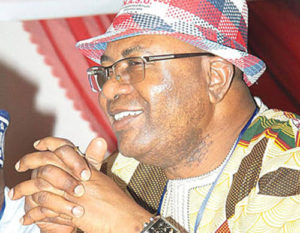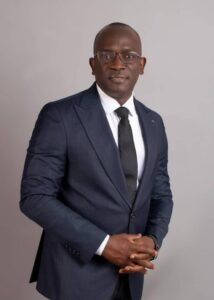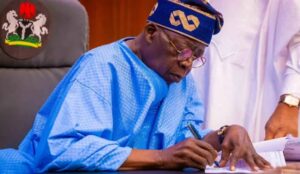IWD: Global labour body tasks Nigerian Trade unions on gender pay gap

Nigerian women today joined their counter parts across the globe to celebrate the International Women’s Day. This is even as the Industriall Global has charged Nigeria Trade Unions to increase their efforts to tackle the underlying factors contributing to the continued struggle to close the gender pay gap.
Speaking during the day’s celebration organised by the National Women Committee of the Industriall Global
Nigeria Council in Lagos, John Adaji, Co-Chair Industriall Global Union Sub-Saharan Africa Region and President National Union of Textile Garment and Tailoring Workers of Nigeria (NUTGTWN)
said the occasion of this year’s IWD, drawn attention to the gender pay gap and gender inequality in general.
Reflecting on this year’s theme, “GENDER EQUALITY TODAY FOR A SUSTAINABLE TOMORROW”, Adaji noted that the gender pay gap in some sectors reduces women’s capacity to secure an independent and decent income.
“Factors contributing to the gender pay gap have been identified. They include: job segregation; discrimination, gender stereotypes and social norms that limit women’s access to labour markets and quality jobs; the undervaluation of women’s work, gender-based violence and harassment in the world of work; and uneven distribution of care responsibilities and unpaid work.
“To achieve a Just Transition for workers in our respective sectors we must strive to achieve gender equality,” he said.
According to him, the global union challenges its affiliates in Nigeria on the need to step up action for the adoption and implementation of policies, at all levels of the union and society that guarantee equal opportunities for employment for all workers, men and women as well as for equal treatment and equal pay.
He said, “In our industries, there are still many obstacles in the way of gender equality and women’s access to better jobs. Job segregation and persistent myths about women’s capacities are used to restrict women to the lowest paid and most precarious work.
“Sexual harassment and gender-based violence are endemic in industries that employ many women and present significant barriers to women entering sectors that currently employ mostly men.
“Companies are failing to make the changes necessary to give women the same opportunities as men. To access the better jobs in our sectors, women have to prove themselves in ways that are not asked of men.”
He expressed that gender equality is not something for women alone to solve, stating that it is a core trade union issue and will only be achieved by women and men working together.
“We must continue to advocate for proper representation of women into decision making at all levels of organisations and society as a whole,” he said.
In her speech, the chairperson, Women Committee, Oluchi Amaogu charged the Federal Government to ratified the International Labour Organization ( ILO) Convention 190, which she noted would put women issues in proper perspective.
“Some countries have already ratified and domesticated the ILO C190. In Africa, Namibia, South Africa, Somalia and Mauritius have already ratified ILO C190. We use this opportunity to say Nigeria as a member country should follow suit,” she said.
She reasoned that Gender balance is not solely a women’s’ issue, but also an economic issue.
She said,”Some days ago we saw how all the bills concerning women were rejected at the National Assembly. To a great extent, it shows that many still believe that the rise of women is the fall of men. There is a continuing need globally for inclusive mindsets and tangible action on gender equality.”
For the President of the National Union of Electricity Employees (NUEE), Martins Uzoegwu women must as a matter of urgency speak out in unison against issues challenging their entity, be it at the union or national level.
“We must take action to advance and protect the rights of women workers, but as much as some of us are ready to do this, the women must also be united when fighting men dominance. We have some of our unions that have more women than men, but you still see men leading them, then you wonder what could be the problem,” he stated.




